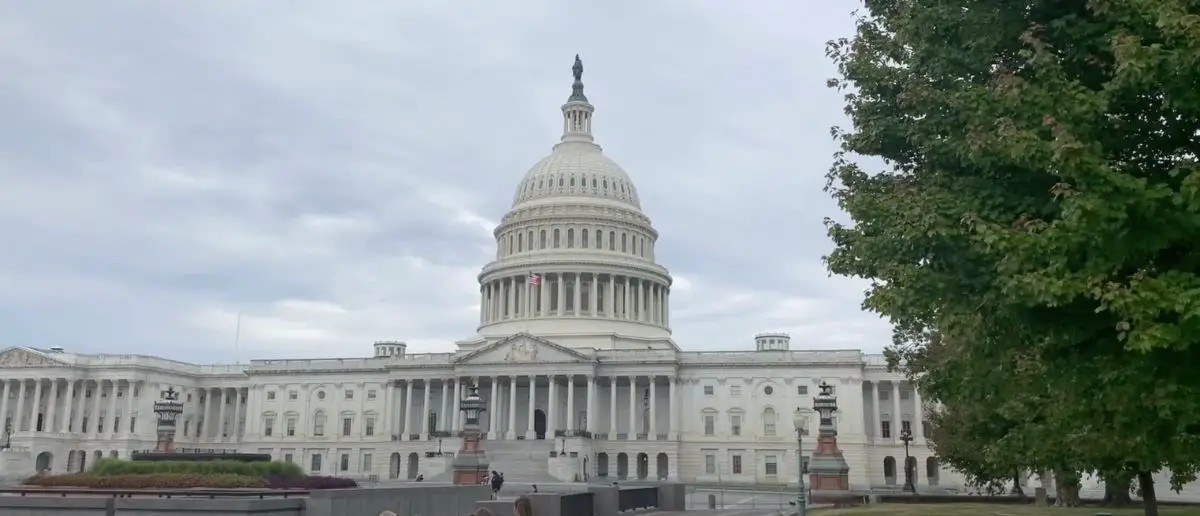
The Democrats have had a rough go over the past 10 years. Now their day of reckoning has arrived.
Because the Democrat Party is officially going extinct with this shocking Congress news now confirmed.
Democrats’ Disconnect with Everyday Americans Deepens Ahead of 2026 Midterms
A recent Marist/NPR/PBS News poll reveals a stark reality for Democrats in Congress: most Americans are increasingly dissatisfied with their performance. The survey, conducted from June 23 to June 25, 2025, shows that only 27% of registered voters approve of how congressional Democrats are handling their duties, a sharp decline from 39% in February 2024. Meanwhile, 58% of voters disapprove, and 15% remain uncertain, signaling a growing frustration with Democratic leadership as the 2026 midterm elections loom.
The poll highlights a troubling trend for Democrats, who appear out of touch with the priorities of average Americans. Even within their own ranks, Democrats are divided, with 44% approving of their congressional leaders and 43% expressing disapproval. This lack of unity suggests an inability to rally around a cohesive vision that resonates with the public, leaving many voters questioning the party’s direction.
By contrast, congressional Republicans are faring better, with 36% of voters approving of their performance, up from 26% in 2024. Notably, 73% of Republicans back their party’s leadership, indicating a stronger sense of loyalty and alignment. While 52% of voters disapprove of Republican leadership, the gap in approval ratings do show a comparative advantage for the GOP in capturing public sentiment.
The Marist poll, surveying 1,381 adults with a margin of error of ±2.9 percentage points, is just one of many recent surveys exposing the Democratic Party’s struggles. As the party gears up to reclaim control of the House in 2026, these numbers paint a grim picture of a party grappling with declining public support and internal discord.
Adding to the Democrats’ woes, reports indicate that the Democratic National Committee (DNC) is facing significant challenges. Infighting within the party has intensified, and donations have dwindled in recent months. This internal turmoil only compounds the perception that Democrats are more focused on their own agendas than on addressing the concerns of everyday Americans.
New Gallup poll shows just 36% of Democrats say they’re very proud to be American vs 92% of Republicans.
Democrats hate America. pic.twitter.com/I0ShljRiw4
— Libs of TikTok (@libsoftiktok) June 30, 2025
The disconnect is particularly evident among Christian voters, a key demographic in the U.S. A separate poll by Vote Common Good, conducted by Change Research from May 6-11, 2025, surveyed 1,761 Christian voters and found deep skepticism toward the Democratic Party. The results are d*mning: 75% of Christian voters have little to no trust in Democrats, 62% say they would never vote for a Democrat, and 58% view the party as hostile to Christianity.
In contrast, Christian voters are far more favorable toward Republicans. Seventy percent consider the Republican Party friendly to Christianity, and 72% feel the same about Republican voters. Only half of Christian voters express distrust in the GOP, highlighting a significant gap in how the two parties are perceived by this influential group.
Doug Pagitt, founder of Vote Common Good and a progressive Evangelical advocate, acknowledged the challenge. “The Democratic Party cannot be the majority party in America if they ignore the majority religion in America,” Pagitt told The Christian Post. Yet, his optimism about winning over faith-based voters seems at odds with the data, which suggests Democrats have failed to build meaningful connections with this group.
Pagitt’s remarks point to a real issue that Democrats have long assumed Christian voters would support them without making a concerted effort to engage them. “For too long, Democratic candidates have taken Christian voters for granted and have not made deep connections,” Pagitt said, criticizing the party’s approach as dismissive and ineffective.
The 2024 presidential election further exposed this divide. Data from the Cultural Research Center at Arizona Christian University showed that 56% of self-identified Christians supported Republican Donald Trump, with strong backing across all Christian subgroups. Exit polls confirmed this trend, with 63% of Protestants and other Christians and 59% of Catholics voting for Trump, while Democrat Kamala Harris garnered just 36% and 39%, respectively.
These numbers suggest that Democrats’ messaging has failed to resonate with a significant portion of the electorate. By prioritizing progressive policies that often clash with the values of many Americans, particularly those rooted in faith, the party risks alienating a large swath of voters who feel their concerns are being ignored.
The Democratic Party’s struggles are not limited to religious voters. The Marist poll’s partisan breakdown—35% Democratic, 34% Republican, and 29% independent among registered voters—reveals that independents, a crucial swing group, are not leaning heavily toward Democrats. This lack of appeal among independents could prove costly in the midterms, where every vote counts.
As the 2026 elections approach, Democrats face a critical juncture. The party’s inability to address the needs and values of average Americans—whether through economic policies, cultural engagement, or effective communication—has left it vulnerable. The growing disapproval among voters, coupled with internal challenges, suggests a party struggling to define itself in a way that connects with the public.
Republicans, meanwhile, appear to be capitalizing on this discontent. Their stronger approval ratings and alignment with key voter groups, particularly Christians, position them as a formidable force heading into the midterms. For Democrats, the path forward requires a reckoning with their current approach and a renewed focus on listening to the Americans they claim to represent.
Stay tuned to the DC Daily Journal.





